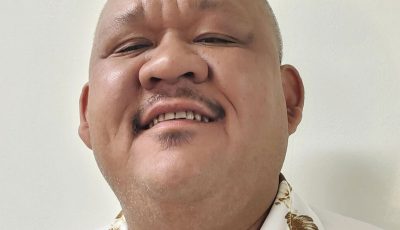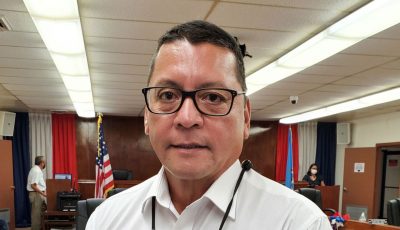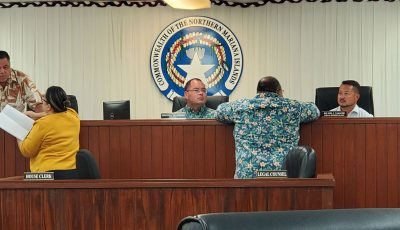TO COLLECT PAYMENTS FOR COURT JUDGMENTS VS GOVT
House agrees with OAG’s position to lobby, tax offset
The House of Representatives has agreed with the Office of the Attorney General’s position that persons with court judgments against the government can lobby to the governor and the Legislature and also avail of the tax offsetting program to collect payments.
House counsel John Cool said plaintiffs can request that the governor include the payment of their judgment in the chief executive’s proposed spending plan.
Cool said the plaintiffs may also appear at any of the numerous public hearings held by the Legislature on the governor’s proposed spending plan and request that the payment of their judgment be included in the appropriation act.
The House’s counsel said the plaintiffs may also pursue alternatives to a cash settlement authorized by the statute such as “offsets and credits on any tax obligation or other obligations of the claimants or members of their immediate family.”
Cool discussed the alternatives on how to collect judgments from the government in the House’s response to Superior Court Associate Judge Joseph N. Camacho’s order, setting a status conference to hear, among other questions, if there is any other mechanisms for plaintiffs Jotonia B. Aguon and Timothy Cruz to seek payment of their judgment against the government, in light of the repeated failure of the Legislature to appropriate for court ordered judgments.
The status conference will be held today, Tuesday, at 1:30pm.
In the government’s response to Camacho’s request, assistant attorney general David Lochabay stated that to get payments from court judgments against the CNMI government, persons can lobby to lawmakers or avail of tax offsets program. Lochabay said historically, persons with judgments and other claims against governments have lobbied legislatures for private bills to pay them.
In the House’s response, Cool also stated that the court may have the authority to order the governor to include the payment of a particular judgment in the governor’s proposed spending plan, or order a department or agency to include the payment of a judgment in their requests to the governor for funding.
“Such a ruling would be more in line with an order in aid of judgment as opposed to a declaration as to the unconstitutionality of the entire Appropriation Act,” he said.
Cool said the Legislature cannot initiate annual appropriation acts on its own.
He said the annual appropriation by the Legislature is only part of the appropriation process.
First, Cool said, the governor submits a proposed spending plan (the budget) to the Legislature.
The governor’s spending plan is based on the requests for funding by the departments and agencies funded by annual appropriations.
Before the Legislature can appropriate any funds, the governor must identify both the amount and the sources of funds, which the Legislature may appropriate.
On the issue of unbalanced budget, Cool said an order in aid of judgment is not the proper legal mechanisms with which to rule that the 2016 budget is unconstitutionally unbalanced.
Cool said the appropriate method to challenge the constitutionality of the 2016 Appropriation Act would be a taxpayer’s right of action.
On the issue of reprogramming funds, the House counsel said ordering the governor to reprogram funds is not an option.
He said the NMI Constitution prohibits the governor from reprogramming appropriated funds without legislature’s approval.
Cool also stated that there are no constitutional or statutory requirements that the governor’s proposed spending plan provide for the payment of all liabilities of the government.
As to the question if the 2016 budget is unconstitutionally unbalanced, Cool said if the 2016 Appropriation Act were to be found to be unconstitutional, the government would be faced with enacting a new appropriation act.
He said before the Legislature can enact a new appropriation, the governor must identify the resources available for appropriation.
He said the resources would need to be sufficient to cover all operations funded by appropriations and all judgments against the government.
Aguon and Cruz are holding a $35,000 judgment against the government over the death of their child during delivery in 2012 at the Commonwealth Health Center.
Another claimant, Gorjonny Camacho, is holding a $10,000 judgment against the government for his medical malpractice lawsuit.



























